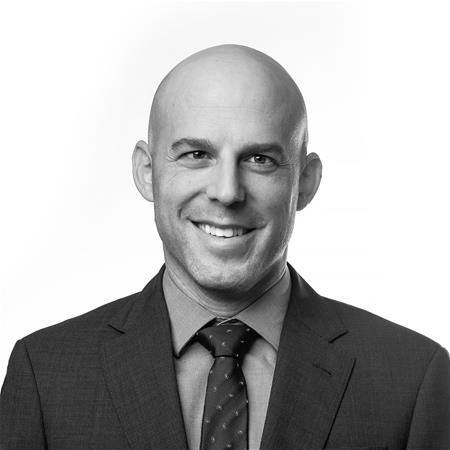How do the rich get richer?
Save early, save as much as you can and invest in appropriately risky assets. Do this, and you can get rich - and keep getting richer.


In the first few years of my career I attended a series of talks, aimed at young adults, where a successful businessperson would share some insights around their life and journey to prosperity. The talks were always excellent - and at a high level, I tried to retain at least one thought from each event.
One of the talks I attended was given by Mr. Meyer Kahn and I recall him - on the topic of wealth - saying that there were two paths to getting rich; working hard, or winning the lottery.
As time has passed I realise that Meyer was right and that it’s the former of his two options that’s realistic for most.
When I was asked to write on this topic, at first blush I thought it would be quite straightforward. After giving it a little thought, I went down the proverbial black hole of trying to define what ‘rich’ is. If we go to the dictionary (read: Google), one of the definitions of rich is, ‘existing in plentiful quantities.’ To me, being rich or wealthy is a relative term, and means different things to different people: to some, R1m is a lot, to others, it’s R1bn. It all comes down to perspective.
Before we move on to the title of my article, ‘How do the rich get richer’, we need to spend some time on what it takes to get rich in the first place. Whilst the Bill Gates and Jeff Bezos of the world are aspirational, amassing that type of money is far out of reach for pretty much everybody.
Perhaps the journey to getting rich should be reframed as working towards financial independence. Being financially independent is not something that can happen overnight and may take a lifetime to achieve. My take on financial independence (or being rich) is when you have no debt and your capital base can support you without a risk of running out of money - whether you live to 80, 90 or 100. I sincerely believe that this position is attainable by many more people than those that enjoy it, but it takes discipline and sacrifice. Here are a few of my suggestions around getting rich:
1. Spend less than you earn and buy less that you
can afford.
This is a common saying, and therefore, unfortunately not my own
genius. It’s a simple principle but one that has immense value. Following
this guideline means you will always have money available to save. Following
this advice around your daily expenses is crucial, and it can be especially
powerful with a long-term contractual payment like a bond on a house. Buying
a house is a long-term, expensive commitment. If you buy a house for R250
000 less than you can afford, you will save around R2 500 in bond payments -
and you’ll also save on things like transfer duties, monthly insurance and
rates-and-taxes. If you invest that R2 500 over the term of the bond you
would end up with a lump sum of R1 578 600 (assuming a return of 8.5% p.a
and a 20-year bond).
2. Know what you spend.
I often hear people saying that they don’t know where their money
goes. One of the best and easiest ways to keep your spending in check is to
have a budget and stick to it. Your budget must be detailed and must
have a line item for ‘unbudgeted expenses’; I’ve personally never had a
month without this entry. Lastly, your budget must also have room for a
little bit of fun - be it a night at the movies, or having some friends over
for a braai.
3. Try and avoid wasting money on emotional purchases. Sleep on a potential purchase before deciding.
4. Take on as little debt as possible.
Something that goes hand-in-hand with this guideline is buying a
car. Just because your car payments have finished doesn’t mean you should
rush out and buy a new car. If you can save a few years of payments over
your life it can be financially meaningful. Also, when buying a car, refer
to point 1 above!
There are many more principles besides those that I’ve put forward above, but hopefully the trend is apparent. The bottom line is that you must make sure that you are a habitual saver from the day you get your first pay-cheque. Regular saving over a long period has remarkable positive outcomes, and can allow average people with average salaries to become rich.
Now that we’ve covered the basics on how to get rich, how do the rich get richer?
One of the most undocumented, and most relevant risks I see is the risk of being overly cautious. Taking appropriate investment risk is probably the biggest determinant of long-term wealth creation. Let’s assume a 40-year working career where you save R3 500 p.m.
A. An annualised net return of 8% results in a future value of R12 299 984
B. An annualised net return of 10% results in a future value of R22 318 713
A 25% increase in return results in an almost 100% increase in future value! It’s very easy to be enticed by lower risk (read: less volatile) assets, especially when you’re in a low-return period like the JSE is in now.
Investing is a long-term game; the 5-year JSE return is below inflation, but
as soon as you look at a meaningful time period, it gets better. The 10-year JSE
return is above 10% and the 15-year return is above 15%. I’ve used the JSE as an
example with no intention to get into a debate about the future of South Africa
and our stock market.
The point is that people who accumulate wealth and grow it can do so by having a
long-term goal with appropriate risk. The rich get richer by putting their money
to work, which means investing in a well diversified, growth-focussed portfolio.
Here are a few more thoughts:
- You shouldn’t spend spontaneously, nor must you invest spontaneously. Take your time to assess your alternatives and then stop along the way to reassess them.
- Choose investments that predominantly have some kind of yield, like dividends, and then reinvest them over time, earning dividends, or other types of yield, and the reinvestment thereof contributes more to overall growth than capital growth.
- If you don’t have time to do in-depth initial research on your own, as well as ongoing monitoring and due diligence of your investments, then hire a professional (who’s accountable) to do it for you.
- Don’t move in and out of investments without good reason. If you fixate on short-term performance, you will end up buying high and selling low.
- Pay careful attention to costs. Your return is going to be enhanced by
whatever costs you can save. Costs are not only the fees you pay, consider
things like tax, which could diminish return:
- Selling an asset triggers capital gains tax which ultimately takes away from your return.
- It’s not only about tax spent, but tax saved. Think of something like a tax-free savings account.
Being too cost-focussed can be destructive to returns, so try and have a balanced approach.
Save early, save as much as you can and invest in appropriately risky assets. Do this, and you can get rich - and keep getting richer.
My parting thought: if you have kids, start an investment for them early on in their life. More importantly, teach them good money habits that they can take to adulthood.
Good luck!













